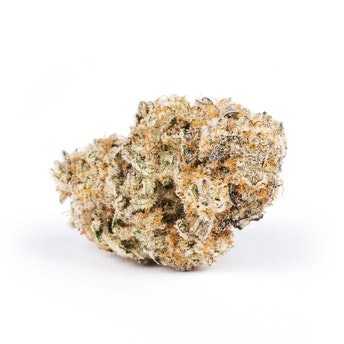If you’ve ever wondered how CBD affects arthritis discomfort, it’s like peeling back the layers of an intricate puzzle.
The impact of CBD on arthritis discomfort and pain management is a topic that continues to intrigue both researchers and individuals seeking alternative therapies.
As you consider the potential benefits and drawbacks of incorporating CBD into your arthritis management plan, there are critical aspects to explore that could potentially revolutionize how you approach your discomfort.
What Impact Does CBD Have on Arthritis Discomfort? Here Are the Ultimate Guide:
1. Mechanisms of CBD on Arthritis Pain
When CBD interacts with the endocannabinoid system in the body, it can help alleviate arthritis pain by reducing inflammation and modulating pain signals. The endocannabinoid system plays a key role in regulating various physiological processes, including pain perception and inflammation. CBD, a cannabinoid derived from the cannabis plant, acts upon this system by binding to cannabinoid receptors, particularly CB2 receptors found in immune cells. By activating these receptors, CBD can help reduce the production of pro-inflammatory molecules, thereby decreasing inflammation in arthritic joints.
Additionally, CBD has been shown to modulate pain signals in the body. It can impact the transmission of pain signals along nerve pathways, making individuals less sensitive to painful stimuli. This modulation of pain perception can lead to a reduction in arthritis-related discomfort. By targeting both inflammation and pain signaling pathways, CBD offers a multifaceted approach to managing arthritis pain effectively.
RELATED ARTICLE: 3 Key CBD Benefits for Adult Well-being
2. Benefits of CBD for Arthritic Patients
CBD offers arthritic patients relief from discomfort through its anti-inflammatory and pain-modulating properties. By interacting with receptors in the endocannabinoid system, CBD helps reduce inflammation in the joints, easing pain and stiffness. This natural compound also has analgesic effects, which can alleviate the persistent discomfort experienced by individuals with arthritis. Moreover, CBD is well-tolerated by most users and has few side effects compared to traditional pain medications.
For arthritic patients seeking alternative or complementary therapies, CBD presents a promising option. Many individuals report improvements in their quality of life, including better sleep, reduced anxiety related to their condition, and increased mobility. Additionally, CBD products come in various forms such as oils, creams, and capsules, making it convenient for users to incorporate them into their daily routine. Whether used alone or in combination with other treatments, CBD shows potential in managing arthritis symptoms and enhancing overall well-being for those living with this chronic condition.
3. CBD Vs Traditional Arthritis Medications
Comparing the effectiveness of traditional arthritis medications with CBD for managing symptoms reveals intriguing insights into their respective benefits and limitations. Traditional arthritis medications like NSAIDs and corticosteroids are commonly prescribed to manage pain and inflammation. While these medications can provide relief, they often come with side effects such as stomach irritation, ulcers, and increased risk of cardiovascular issues.
On the other hand, CBD, a natural compound derived from the cannabis plant, has gained attention for its potential anti-inflammatory and pain-relieving properties without the same level of side effects as traditional medications. CBD interacts with the endocannabinoid system in the body, which plays a role in regulating pain, inflammation, and immune response.
Studies have shown that CBD may help reduce arthritis pain and inflammation, improve sleep quality, and enhance overall well-being. However, more research is needed to fully understand CBD’s effectiveness compared to traditional arthritis medications. It’s essential to consult with a healthcare provider before making any changes to your arthritis treatment regimen.
4. Dosage and Administration of CBD for Arthritis
Exploring the optimal dosage and administration of CBD for arthritic discomfort management presents a crucial aspect in harnessing its potential benefits for alleviating discomfort and inflammation. When considering CBD for arthritis, finding the right dose and method of intake is essential for maximizing its effectiveness. Here are some key points to keep in mind:
-
- Start Low and Go Slow: Begin with a low dose of CBD, such as 5-10mg, and gradually increase until you find the optimal dosage that provides relief without adverse effects.
-
- Consider Your Body Weight: Individuals with higher body weights may require higher doses of CBD to experience the same effects as those with lower body weights.
-
- Choose the Right Administration Method: CBD for arthritis can be consumed orally through oils or capsules, topically via creams or balms, or inhaled through vaping. Each method may have different onset times and durations of effects.
-
- Consult with a Healthcare Professional: It’s crucial to consult with a healthcare provider experienced in CBD use for arthritis to determine the best dosage and administration method based on your specific needs and health conditions.
5. Potential Side Effects of CBD in Arthritis Management
Considering the potential drawbacks, vigilance in monitoring your body’s response to CBD during arthritis management is paramount. While CBD is generally well-tolerated, it may cause some side effects in certain individuals. Common side effects of CBD use in arthritis management include dry mouth, dizziness, changes in appetite, and diarrhea. These side effects are usually mild and tend to subside as your body adjusts to the CBD treatment. However, if you experience persistent or severe side effects, it’s crucial to consult with your healthcare provider.
In some cases, CBD may interact with certain medications, such as blood thinners, potentially leading to adverse effects. It’s essential to inform your healthcare provider about your CBD use to prevent any harmful interactions with other medications you may be taking for arthritis or other health conditions. Additionally, while rare, some individuals may experience allergic reactions to CBD, presenting as skin rashes or respiratory issues. If you notice any concerning symptoms after starting CBD for arthritis management, seek medical attention promptly.
Frequently Asked Questions
Can CBD Be Used as a Standalone Treatment for Arthritis or Should It Be Used in Conjunction With Other Medications?
For arthritis treatment, CBD can be used alone or with other medications. It’s crucial to consult your doctor to determine the best course of action. CBD’s effectiveness may vary depending on individual circumstances.
Are There Any Specific Types of Arthritis That Respond Better to CBD Treatment Than Others?
Certain types of arthritis, like rheumatoid arthritis, respond better to CBD treatment due to its anti-inflammatory properties. It can help manage symptoms effectively. Consulting a healthcare provider for personalized advice is recommended.
How Long Does It Typically Take for Patients to Experience Relief From Arthritis Pain After Starting CBD Treatment?
When you start CBD treatment for arthritis, relief can vary. Some might experience pain reduction within a few days, while others may take weeks. Consistency in dosage and patience are key for optimal results.
Are There Any Specific Lifestyle Changes or Complementary Treatments That Are Recommended to Enhance the Effects of CBD for Arthritis Pain?
To enhance the effects of CBD for arthritic discomfort and pain, consider incorporating lifestyle changes like regular exercise, maintaining a healthy diet, managing stress, and ensuring proper sleep. Complementary treatments such as physical therapy and acupuncture can also be beneficial.
How Does the Quality and Source of CBD Products Impact Their Effectiveness in Managing Arthritis Symptoms?
When looking for CBD products to manage arthritis symptoms, consider the quality and source. Opt for reputable brands with transparent sourcing to ensure effectiveness. Quality and source impact how well CBD products manage arthritis symptoms.
Conclusion
In conclusion, CBD has shown promise in reducing arthritis discomfort by targeting inflammation and pain pathways in the body.
Many arthritic patients have reported significant relief from their symptoms with the use of CBD, with fewer side effects compared to traditional medications.
It’s important to consult with a healthcare provider to determine the appropriate dosage and administration of CBD for arthritis management.




